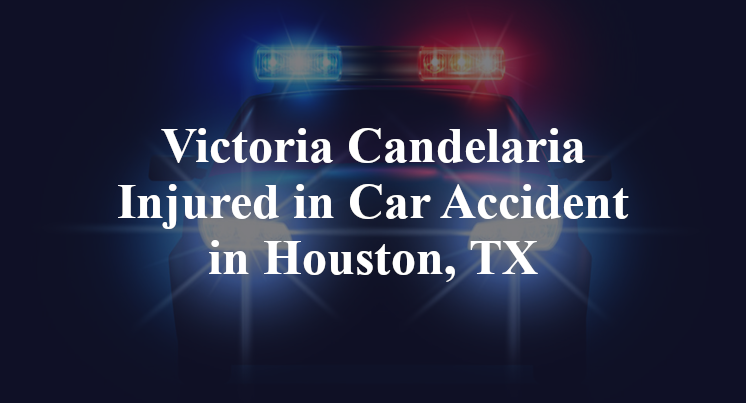Victoria Candelaria Injured in Car Accident in Houston, TX
Harris County, TX — June 30, 2024, Victoria Candelaria was injured due to a car accident just before 4:15 p.m. along Congress Street.
According to authorities, 76-year-old Victoria Candelaria was traveling in a westbound Ford F-150 pickup truck on Congress Street at the Austin Street intersection when the accident took place.

The intersection is controlled by a traffic signal. Officials indicate that, for as yet unknown reasons, a collision took place in the intersection between the left side of the pickup truck and the front-end of a northbound Ford Taurus. The pickup truck apparently overturned due to the impact. It remains unclear which vehicle had the right of way at the time of the wreck.
Candelaria reportedly sustained serious injuries over the course of the accident; she was transported to a local medical facility by EMS in order to receive necessary treatment. Additional details pertaining to this incident are not available at this point in time.
Commentary by Attorney Michael Grossman
When a crash happens in a signal-controlled intersection and the result is a rollover, it's clear that something went seriously wrong. But when no one can confirm who had the light, the facts can quickly get buried in assumptions—and that’s a real problem when someone ends up in the hospital.
1. Did the authorities thoroughly investigate the crash?
A rollover suggests a significant force, but the most critical detail—who had the green—appears to be unresolved. Did investigators confirm signal timing through the traffic control system? Were there any witnesses or cameras that could verify who entered first? A thorough investigation in this kind of crash should also map the vehicle positions, impact angles, and road markings. Without that, the full story may remain unclear, and the wrong conclusions could shape how the event is remembered or legally handled.
2. Has anyone looked into the possibility that a vehicle defect caused the crash?
While many crashes in intersections are blamed on drivers, mechanical problems can’t be ruled out. A steering or brake failure, even momentary, could easily cause a driver to enter at the wrong time. On the other side, a sudden power loss or suspension issue might prevent a vehicle from avoiding impact. For the F-150 especially, it's worth asking whether any instability or structural issue contributed to the rollover—though such answers are only possible if the vehicle was inspected in the aftermath.
3. Has all the electronic data relating to the crash been collected?
Both the F-150 and the Taurus are likely equipped with event data recorders. That onboard information can confirm acceleration, braking, and steering in the seconds before impact. It can also reveal whether the F-150 was stopped or in motion when the crash occurred, and whether either vehicle made evasive moves. In a situation where conflicting statements are likely, that kind of evidence may be the only way to get to the truth—assuming it was retrieved in time.
Intersections controlled by lights should offer clarity. But when data isn’t gathered and equipment goes unexamined, that clarity fades fast—leaving only questions where answers should be.
Takeaways:
- Signal-controlled crashes demand evidence of light timing and impact sequence.
- Mechanical failures might have caused or worsened the crash but are easy to overlook.
- Vehicle data can clarify movements, speed, and brake use leading up to the collision.

*We appreciate your feedback and welcome anyone to comment on our blog entries, however all visitor blog comments must be approved by the site moderator prior to showing live on the site. By submitting a blog comment you acknowledge that your post may appear live on the site for any visitors to see, pending moderator approval. The operators of this site are not responsible for the accuracy or content of the comments made by site visitors. By submitting a comment, blog post, or email to this site you acknowledge that you may receive a response with regard to your questions or concerns. If you contact Grossman Law Offices using this online form, your message will not create an attorney-client relationship and will not necessarily be treated as privileged or confidential! You should not send sensitive or confidential information via the Internet. Since the Internet is not necessarily a secure environment, it is not possible to ensure that your message sent via the Internet might be kept secure and confidential. When you fill out a contact or comment form, send us an email directly, initiate a chat session or call us, you acknowledge we may use your contact information to communicate with you in the future for marketing purposes, but such marketing will always be done in an ethical way.